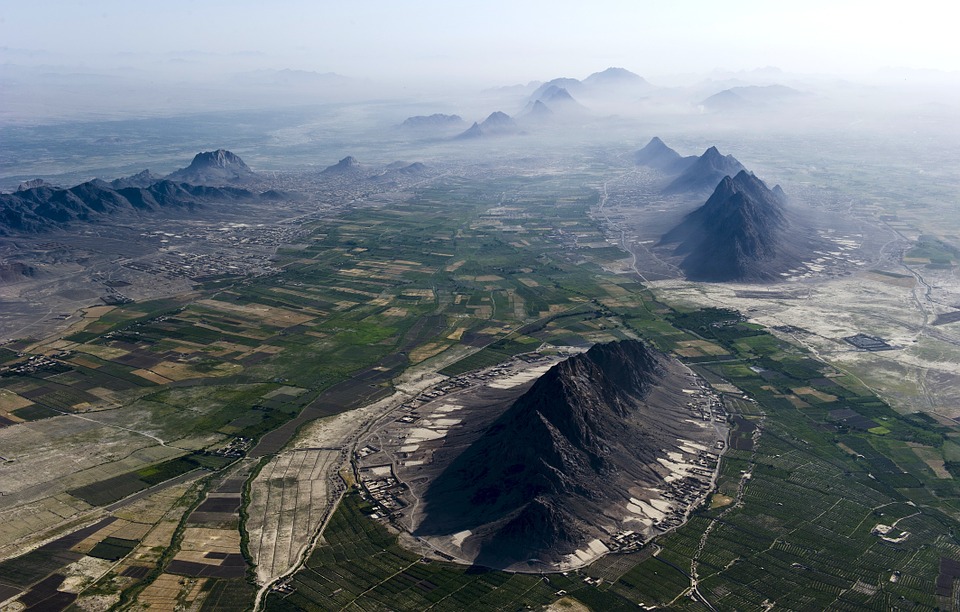Afghanistan was founded in 1747 by Ahmad Shah Durrani. Ever since its inception Afghanistan functioned as a buffer zone between the British Empire and Soviet Empire, the country gained independence in 1919 from a theoretical British control. The country witnessed decades of peace until the last Afghan King Zahir Shah was overthrown by his own cousin Dawood Khan in a coup in 1973. Continued communist activities, with significant support from the USSR and their close links with the Afghan military, ultimately resulted in a coup by the communists in 1978. In 1979, the Soviets invaded Afghanistan, and in a matter of days handed over power to one of the communist groups, namely People’s Democratic Party of Afghanistan (PDPA).
After a decade long war, helped by the international community, the Soviet Union was defeated and pulled out of Afghanistan in 1989. The communists remained in power, however, for three more years. In 1992, the Afghan resistance overthrew the communist regime and an interim government was formed. But tensions among the various Afghan factions led to civil war soon afterwards which lasted for several years. This led to the fall of the Kabul in 1996 to the Taliban, a Pakistani sponsored movement. Following the September 11 attacks in 2001, the US and its allies toppled the Taliban in a military action.
With the beginning of the war on terror, Afghanistan was, once again, supported by the international community to form an interim government, followed by a new constitution for the country. Nationwide elections were held for the first time in the history of Afghanistan to freely elect a president in 2004 and have since been held twice.
Practical Information
- Head of State: Ashraf Ghani Ahmadzai
- Government Type: Republic
- Capital: Kabul
- Administrative Entities: 34 provinces, 400 districts
- Legislative Body: National Assembly consists of two chambers, The Senate and the House of People
- Judiciary: Supreme Court
- Population: 35 million
- Nationality: Afghan
- Official Language: Dari and Pashto
- Other Languages: Uzbek, Turkmen, Pashaye, Nuristani
- Religion: Islam
Travel Advice
The most convenient way of travel to Afghanistan is through Air travel. International flights from Dubai, Sharjah, Istanbul, Islamabad and New Delhi depart on a daily basis and some routes are even operated several times a day. The most common route into Afghanistan is through Dubai, with several daily commercial flights into Kabul and non-commercial flights into various ports of entry.
Lesser secure travel by land is also possible through different borders with Afghanistan’s neighbor’s such as Pakistan, Iran, Turkmenistan, Uzbekistan and Tajikistan.
Before travel however, all foreign nationals traveling to Afghanistan need to obtain a valid visa from an Afghan diplomatic mission outside of Afghanistan. This can be a somewhat time consuming and complex process, which is why it is important to:
- Give yourself enough time and start the visa process in advance before traveling to Afghanistan
- Make sure that you have all the requirements ready
- Apply for an Invitation Letter
- Once the Invitation Letter is issued you will have 30 days to process the visa
- The visa is usually processed in one work day upon submission of passport together with all other relevant documents.
Post was created by http://www.soultancy.com/
